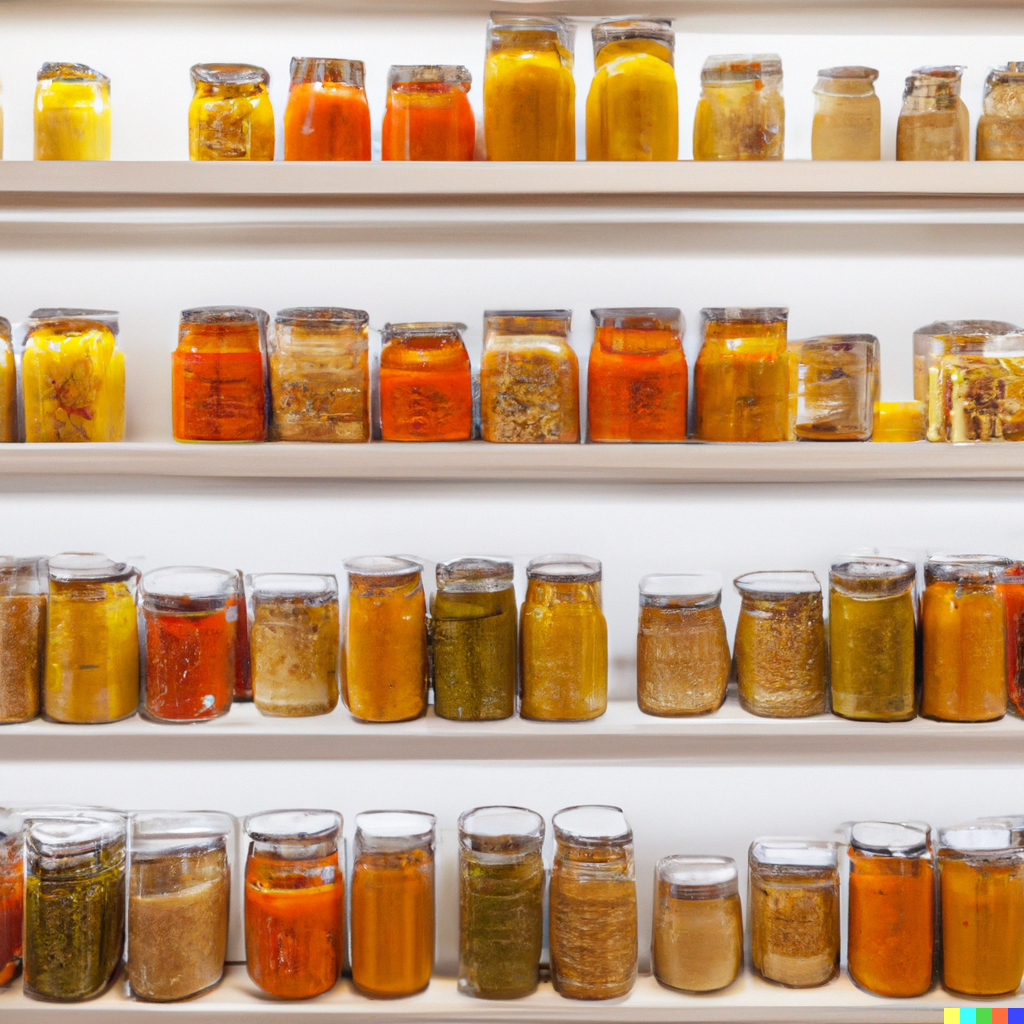To make food last as long as possible, focus on proper storage, preservation techniques, and smart cooking methods. Here are some practical strategies to extend the shelf life of your food:
1. Store Food Properly
- Fridge Settings: Keep your refrigerator at or below 40°F (4°C) and your freezer at 0°F (-18°C).
- Use Airtight Containers: Store leftovers, grains, and dry goods in airtight containers to prevent moisture and contamination.
- Wrap Produce: Wrap leafy greens in paper towels and store them in breathable bags. Keep mushrooms in paper bags to avoid sogginess.
- Separate Ethylene-Producing Fruits: Fruits like apples, bananas, and avocados emit ethylene gas, which can accelerate the ripening of other produce. Store them separately.
2. Freezing
- Batch Cook and Freeze: Prepare meals in bulk and freeze portions in labeled containers.
- Blanch Vegetables: Briefly boil vegetables and then freeze them to preserve color, texture, and nutrients.
- Freeze Herbs: Chop herbs and freeze them in ice cube trays with olive oil or water.
3. Drying and Dehydrating
- Dehydrate Fruits and Vegetables: Use a dehydrator or an oven at a low temperature to dry fruits, veggies, and even meats (jerky).
- Sun-Drying: For climates with low humidity, sun-drying tomatoes, herbs, or fruits can be an effective method.
4. Pickling and Fermenting
- Pickle Vegetables: Use vinegar, salt, and spices to pickle cucumbers, carrots, and onions.
- Ferment: Fermented foods like kimchi, sauerkraut, and kombucha can last for months and improve gut health.
5. Vacuum Sealing
- Vacuum-Seal Meats and Vegetables: This method removes air, significantly slowing spoilage and freezer burn.
6. Canning and Preserving
- Home Canning: Use proper canning techniques to preserve fruits, vegetables, and sauces.
- Jam and Jelly: Use excess fruits to make jams, extending their shelf life by months.
7. Smart Cooking and Portioning
- Cook in Smaller Batches: Prepare meals in smaller portions to avoid leftovers that go uneaten.
- Use Perishables First: Plan meals around ingredients that spoil quickly, like fresh seafood, berries, and leafy greens.
8. Extend Shelf Life with Natural Preservatives
- Lemon Juice: Prevent apples, avocados, and guacamole from browning by adding lemon juice.
- Salt and Sugar: Cure meats or preserve fruits with salt or sugar, both of which inhibit bacterial growth.
9. Keep Track of Expiry Dates
- First In, First Out: Rotate food items by placing older products at the front and newer items in the back.
- Label and Date: Clearly mark and date items stored in the freezer or pantry to avoid spoilage.
10. Regularly Clean Your Fridge and Pantry
- Declutter and Clean: Regularly check for expired or forgotten food items and clean spills to prevent bacteria buildup.
By applying these techniques, you can significantly reduce food waste, save money, and ensure that your meals remain fresh and delicious for longer.
